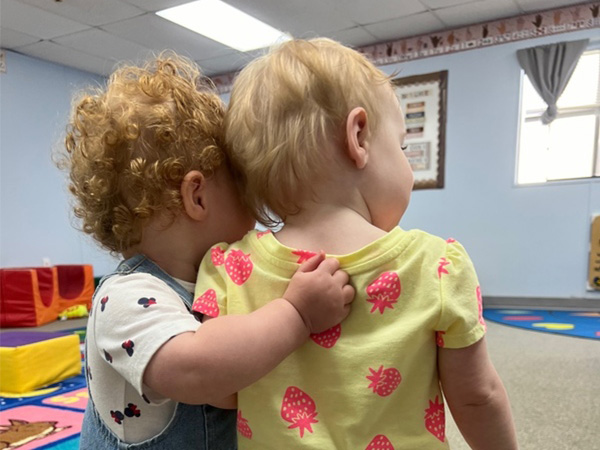
We’re thrilled to share some exciting news: our preschool has just added a garden space where the children can plant, grow, and harvest their very own vegetables, herbs, and flowers!
But this garden is more than just a place to dig in the dirt—it’s a living classroom. It’s hands-on, joyful, and rich with opportunities for growth in every sense of the word. Gardening may seem like a simple outdoor activity, but it nurtures many of the foundational skills children need in early childhood—from fine motor development and sensory exploration to patience, empathy, and responsibility.
Why Gardening Is a Powerful Tool for Early Childhood Development
Young children learn best through meaningful, hands-on experiences. A garden offers just that—a place where learning is alive, sensory-rich, and rooted in nature. Here’s how gardening supports your child’s development in big ways:
 1. It Builds Sensory Awareness
1. It Builds Sensory Awareness
Gardening is a full-body, multi-sensory activity:
Feeling the cool soil, smooth seeds, or soft leaves.
Smelling herbs like mint or lavender.
Listening to birds, buzzing bees, or the sound of watering cans.
Watching changes day by day as sprouts emerge and blossoms open.
These experiences help children refine their sensory processing skills, which play a key role in everything from motor coordination to emotional regulation.
 2. It Fosters Responsibility and Patience
2. It Fosters Responsibility and Patience
Plants don’t grow overnight—and that’s exactly the lesson!
As children water seedlings, remove weeds, and wait for sprouts to appear, they begin to understand:
The importance of daily care and consistency.
That their actions have an impact—even if the results aren’t immediate.
How to cope with delayed gratification (a skill that supports future learning, emotional regulation, and resilience).
 3. It Encourages Healthy Eating and Curiosity About Food
3. It Encourages Healthy Eating and Curiosity About Food
Children are far more likely to try new foods when they’ve grown them themselves. Our garden gives kids the chance to:
Taste fresh produce they helped grow—like cherry tomatoes, carrots, or snap peas.
Learn where food comes from and how it grows.
Develop a positive relationship with fruits and vegetables through exploration and play, not pressure.
This connection helps support lifelong healthy eating habits.
 4. It Strengthens Fine Motor and Cognitive Skills
4. It Strengthens Fine Motor and Cognitive Skills
Scooping soil, pinching seeds, pulling weeds, and pouring water may seem simple, but they’re fantastic ways to build:
Fine motor control, essential for writing and other school-readiness tasks.
Planning and sequencing skills as children follow steps in planting and care.
Early science concepts like growth cycles, weather effects, and life stages.
Gardening also boosts executive function: the ability to plan, remember steps, stay focused, and adapt—core skills for learning success.
 5. It Nurtures Emotional Growth and Empathy
5. It Nurtures Emotional Growth and Empathy
Taking care of living things is a profound emotional experience for young children. In the garden, they learn to:
Be gentle, observant, and responsive.
Show empathy toward fragile sprouts or worms in the soil.
Celebrate the small wins—like spotting a new bud or seeing a butterfly land on their plant.
This fosters a deep connection to nature, and builds social-emotional skills that are essential for relationships and classroom life.
Where Learning Takes Root
At Poway Hilltop Preschool, we believe learning should be joyful, meaningful, and grounded in the real world. Our new garden is a reflection of that philosophy—a place where children can wonder, explore, and grow in every way.
We can’t wait to see the learning (and the veggies!) bloom.
Stay tuned for garden updates—together, we’re planting the seeds for a lifelong love of learning.



